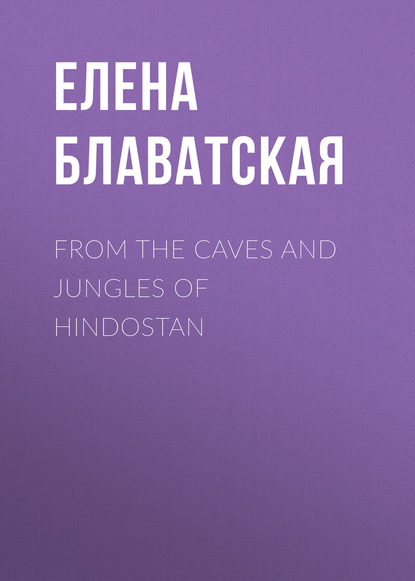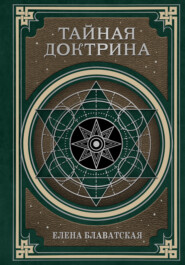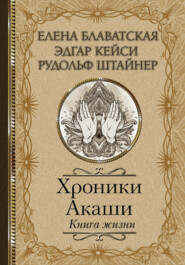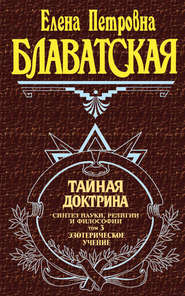По всем вопросам обращайтесь на: info@litportal.ru
(©) 2003-2024.
✖
From the Caves and Jungles of Hindostan
Настройки чтения
Размер шрифта
Высота строк
Поля
Feeling perfectly innocent, the gentlemen mentioned the tragic end of the troublesome flying fox to their host, and instantly drew down on their heads all the thunder-clouds of heaven.
The yard was crowded with people. All the inhabitants of the house stood sorrowfully drooping their heads, at the entrance of the tower. Our host's old mother tore her hair in despair, and shrieked lamentations in all the languages of India. What was the matter with them all? We were at our wits' end. But when we learned the cause of all this, there was no limit to our confusion.
By certain mysterious signs, known only to the family Brahman, it had been decided ten years ago that the soul of our host's elder brother had incarnated in this blood-thirsty vampire-bat. This fact was stated as being beyond any doubt. For nine years the late Patarah Prabhu existed under this new shape, carrying out the laws of metempsychosis. He spent the hours between sunrise and the sunset in an old pipal-tree before the tower, hanging with his head downwards. But at night he visited the old tower and gave fierce chase to the insects that sought rest in this out-of-the-way corner. And so nine years were spent in this happy existence, divided between sleep, food, and the gradual redemption of old sins committed in the shape of a Patarah Prabhu. And now? Now his listless body lay in the dust at the entrance of his favorite tower, and his wings were half devoured by the rats. The poor old woman, his mother, was mad with sorrow, and cast, through her tears, reproachful, angry looks at Mr. Y–, who, in his new capacity of a heartless murderer, looked disgustingly composed.
But the affair was growing serious. The comical side of it disappeared before the sincerity and the intensity of her lamentations. Her descendants, grouped around her, were too polite to reproach us openly, but the expression of their faces was far from reassuring. The family priest and astrologer stood by the old lady, Shastras in hand, ready to begin the ceremony of purification. He solemnly covered the corpse with a piece of new linen, and so hid from our eyes the sad remains on which ants were literally swarming.
Mr. Y– did his best to look unconcerned, but still, when the tactless Miss X– came to him, expressing her loud indignation at all these superstitions of an inferior race, he at least seemed to remember that our host knew English perfectly, and he did not encourage her farther expressions of sympathy. He made no answer, but smiled contemptuously. Our host approached the colonel with respectful salaams and invited us to follow him.
"No doubt he is going to ask us to leave his house immediately!" was my uncomfortable impression.
But my apprehension was not justified. At this epoch of my Indian pilgrimage I was far, as yet, from having fathomed the metaphysical depth of a Hindu heart.
Sham Rao began by delivering a very far-fetched, eloquent preface. He reminded us that he, personally, was an enlightened man, a man who possessed all the advantages of a Western education. He said that, owing to this, he was not quite sure that the body of the vampire was actually inhabited by his late brother. Darwin, of course, and some other great naturalists of the West, seemed to believe in the transmigration of souls, but, as far as he understood, they believed in it in an inverse sense; that is to say, if a baby had been born to his mother exactly at the moment of the vampire's death, this baby would indubitably have had a great likeness to a vampire, owing to the decaying atoms of the vampire being so close to her.
"Is not this an exact interpretation of the Darwinian school?" he asked.
We modestly answered that, having traveled almost incessantly during the last year, we could not help being a bit behindhand in the questions of modern science, and that we were not able to follow its latest conclusions.
"But I have followed them!" rejoined the good-natured Sham Rao, with a touch of pomposity. "And so I hope I may be allowed to say that I have understood and duly appreciated their most recent developments. I have just finished studying the magnificent Anthropogenesis of Haeckel, and have carefully discussed in my own mind his logical, scientific explanations of the origin of man from inferior animal forms through transformation. And what is this transformation, pray, if not the transmigration of the ancient and modern Hindus, and the metempsychosis of the Greeks?"
We had nothing to say against the identity, and even ventured to observe that, according to Haeckel, it does look like it.
"Exactly!" exclaimed he joyfully. "This shows that our conceptions are neither silly nor superstitious, as is maintained by some opponents of Manu. The great Manu, anticipated Darwin and Haeckel. Judge for yourself; the latter derives the genesis of man from a group of plastides, from the jelly-like moneron; this moneron, through the ameoba, the ascidian, the brainless and heartless amphioxus, and so on, transmigrates in the eighth remove into the lamprey, is transformed, at last, into a vertebrate amniote, into a premammalian, into a marsupial animal.... The vampire, in its turn, belongs to the species of vertebrates. You, being well read people all of you, cannot contradict this statement." He was right in his supposition; we did not contradict it.
"In this case, do me the honor to follow my argument...."
We did follow his argument with the greatest attention, but were at a loss to foresee whither it tended to lead us.
"Darwin," continued Sham Rao, "in his Origin of Species, re-established almost word for word the palin-genetic teachings of our Manu. Of this I am perfectly convinced, and, if you like, I can prove it to you book in hand. Our ancient law-giver, amongst other sayings, speaks as follows: 'The great Parabrahm commanded man to appear in the universe, after traversing all the grades of the animal kingdom, and springing primarily from the worm of the deep sea mud.' The worm be-came a snake, the snake a fish, the fish a mammal, and so on. Is not this very idea at the bottom of Darwin's theory, when he maintains that the organic forms have their origin in more simple species, and says that the structureless protoplasm born in the mud of the Laurentian and Silurian periods—the Manu's 'mud of the seas,' I dare say—gradually transformed itself into the anthropoid ape, and then finally into the human being?"
We said it looked very like it.
"But, in spite of all my respect for Darwin and his eminent follower Haeckel, I cannot agree with their final conclusions, especially with the conclusions of the latter," continued Sham Rao. "This hasty and bilious German is perfectly accurate in copying the embryology of Manu and all the metamorphoses of our ancestors, but he forgets the evolution of the human soul, which, as it is stated by Manu, goes hand in hand with the evolution of matter. The son of Swayambhuva, the Self Becoming, speaks as follows: 'Everything created in a new cycle, in addition to the qualities of its preceding transmigrations, acquires new qualities, and the nearer it approaches to man, the highest type of the earth, the brighter becomes its divine spark; but, once it has become a Brahma, it will enter the cycle of conscious transmigrations.' Do you realize what that means? It means that from this moment, its transformations depend no longer on the blind laws of gradual evolution, but on the least of a man's actions, which brings either a reward or a punishment. Now you see that it depends on the man's will whether, on the one hand, he will start on the way to Moksha, the eternal bliss, passing from one Loka to another till he reaches Brahmaloka, or, on the other, owing to his sins, will be thrown back. You know that the average soul, once freed from earthly reincarnations, has to ascend from one Loka to another, always in the human shape, though this shape will grow and perfect itself with every Loka. Some of our sects understood these Lokas to mean certain stars. These spirits, freed from earthly matter, are what we mean by Pitris and Devas, whom we worship. And did not your Kabalists of the middle ages designate these Pitris under the expression Planetary Spirits? But, in the case of a very sinful man, he will have to begin once more with the animal forms which he had already traversed unconsciously. Both Darwin and Haeckel lose sight of this, so to speak, second volume of their incomplete theory, but still neither of them advances any argument to prove it false. Is it not so?"
"Neither of them does anything of the sort, most assuredly."
"Why, in this case," exclaimed he, suddenly changing his colloquial tone for an aggressive one, "why am I, I who have studied the most modern ideas of Western science, I who believe in its representatives—why am I suspected, pray, by Miss X– of belonging to the tribe of the ignorant and superstitious Hindus? Why does she think that our perfected scientific theories are superstitions, and we ourselves a fallen inferior race?"
Sham Rao stood before us with tears in his eyes. We were at a loss what to answer him, being confused to the last degree by this outburst.
"Mind you, I do not proclaim our popular beliefs to be infallible dogmas. I consider them as mere theories, and try to the best of my ability to reconcile the ancient and the modern science. I formulate hypotheses just like Darwin and Haeckel. Besides, if I understood rightly, Miss X– is a spiritualist, so she believes in bhutas. And, believing that a bhuta is capable of penetrating the body of a medium, how can she deny that a bhuta, and more so a less sinful soul, may enter the body of a vampire-bat?"
I own, this logic was a little too condensed for us, and so, avoiding a direct answer to a metaphysical question of such delicacy, we tried to apologize and excuse Miss X–'s rudeness as well as we could.
"She did not mean to offend you," we said, "she only repeated a calumny, familiar to every European. Besides, if she had taken the trouble to think it over, she probably would not have said it...."
Little by little we succeeded in pacifying our host. He recovered his usual cheerfulness, but could not resist the temptation of adding a few words to his long argumentation. He had just begun to reveal to us certain peculiarities of his late brother's character, which induced him to be prepared, judging by the laws of atavism, to see their repetition in the propensities of a vampire bat, when Mr. Y–suddenly dashed in on our small group and spoiled all the results of our conciliatory words by screaming at the top of his voice: "The old woman has gone demented! She keeps on cursing us and says that the murder of this wretched bat is only the forerunner of a whole series of misfortunes brought on her house by you, Sham Rao," said he, hastily addressing the bewildered follower of Haackel. "She says you have polluted your Brahmanical holiness by inviting us. Colonel, you had better send for the elephants. In another moment all this crowd will be on us…"
"For goodness' sake!" exclaimed poor Sham Rao, "have some consideration for my feelings. She is an old woman, she has some superstitions, but she is my mother. You are educated people, learned people… Advise me, show me a way out of all these difficulties. What should you do in my place?"
"What should I do, sir?" exclaimed Mr. Y–, completely put out of temper by the utter ludicrousness of our awkward predicament. "What should I do? Were I a man in your position and a believer in all you are brought up to believe, I should take my revolver, and in the first place, shoot all the vampire bats in the neighborhood, if only to rid all your late relations from the abject bodies of these creatures, and, in the second place, I should endeavor to smash the head of the conceited fraud in the shape of a Brahman who invented all this stupid story. That is what I should do, sir!"
But this advice did not content the miserable descendant of Rama. No doubt he would have remained a long time undecided as to what course of action to adopt, torn as he was between the sacred feelings of hospitality, the innate fear of the Brahman-priest, and his own superstitions, if our ingenious Babu had not come to our rescue. Learning that we all felt more or less indignant at all this row, and that we were preparing to leave the house as quickly as possible, he persuaded us to stay, if only for an hour, saying that our hasty departure would be a terrible outrage upon our host, whom, in any case, we could not find fault with. As to the stupid old woman, the Babu promised us to pacify her speedily enough: he had his own plans and views. In the meantime, he said, we had better go and examine the ruins of an old fortress close by.
We obeyed very reluctantly, feeling an acute interest in his "plans." We proceeded slowly. Our gentlemen were visibly out of temper. Miss X– tried to calm herself by talking more than usual, and Narayan, as phlegmatic as usual, indolently and good-naturedly chaffed her about her beloved "spirits." Glancing back we saw the Babu accompanied by the family priest. Judging by their gestures they were engaged in some warm discussion. The shaven head of the Brahman nodded right and left, his yellow garment flapped in the wind, and his arms rose towards the sky, as if in an appeal to the gods to come down and testify to the truth of his words.
"I'll bet you a thousand dollars, no plans of our Babu's will be of any avail with this fanatic!" confidently remarked the colonel as he lit his pipe.
But we had hardly walked a hundred steps after this remark when we saw the Babu running after us and signaling us to stop.
"Everything ended first-rate!" screamed he, as soon as we could hear. "You are to be thanked… You happen to be the true saviours and benefactors of the deceased bhuta… You…"
Our Babu sank on the ground holding his narrow, panting breast with both his hands, and laughed, laughed till we all burst into laughter too, before learning any-thing at all.
"Think of it," began the Babu, and stopped short, prevented from going on by his exuberant hilarity. "Just think of it! The whole transaction is to cost me only ten rupees.... I offered five at first… but he would not.... He said this was a sacred matter..... But ten he could not resist! Ho, ho, ho...."
At last we learned the story. All the metempsychoses depend on the imagination of the family Gurus, who receive for their kind offices from one hundred to one hundred and fifty rupees a year. Every rite is accompanied by a more or less considerable addition to the purse of the insatiable family Brahman, but the happy events pay better than the sad ones. Knowing all this, the Babu asked the Brahman point-blank to perform a false samadhi, that is to say, to feign an inspiration and to announce to the sorrowing mother that her late son's will had acted consciously in all the circumstances; that he brought about his end in the body of the flying fox, that he was tired of that grade of transmigration, that he longed for death in order to attain a higher position in the animal kingdom, that he is happy, and that he is deeply indebted to the sahib who broke his neck and so freed him from his abject embodiment.
Besides, the observant eye of our all-knowing Babu had not failed to remark that a she-buffalo of the Guru's was expecting a calf, and that the Guru was yearning to sell it to Sham Rao. This circumstance was a trump card in the Babu's hand. Let the Guru announce, under the influence of samadhi, that the freed spirit intends to inhabit the body of the future baby-buffalo and the old lady will buy the new incarnation of her first-born as sure as the sun is bright. This announcement will be followed by rejoicings and by new rites. And who will profit by all this if not the family priest?
At first the Guru had some misgivings, and swore by everything sacred that the vampire bat was veritably inhabited by the brother of Sham Rao. But the Babu knew better than to give in. The Guru ended by understanding that his skillful opponent saw through his tricks, and that he was well aware that the Shastras exclude the possibility of such a transmigration. Growing alarmed, the Guru also grew meek, and asked only ten rupees and a promise of silence for the performance of a samadhi.
On our way back we were met at the gate by Sham Rao, who was simply radiant. Whether he was afraid of our laughing at him, or was at loss to find an explanation of this new metamorphosis in the positive sciences in general, and Haeckel in particular, he did not attempt to explain why the affair had taken such an unexpectedly good turn. He merely mentioned awkwardly enough that his mother, owing to some new mysterious conjectures of hers, had dismissed all sad apprehensions as to the destiny of her elder son, and he then dropped the subject completely.–
In order to wipe away the traces of the morning's perplexities from our minds, Sham Rao invited us to sit on the verandah, by the wide entrance of his idol room, whilst the family prayers were going on. Nothing could suit us better. It was nine o'clock, the usual time of the morning prayers. Sham Rao went to the well to get ready, and dress himself, as he said, though the process was more like undressing. In a few moments he came back wearing only a dhuti, as during dinner time, and with his head uncovered. He went straight to his idol room. The moment he entered we heard the loud stroke of a bell that hung under the ceiling, and that continued tolling all the time the prayers lasted.
The Babu explained to us that a little boy was pulling the bell rope from the roof.
Sham Rao stepped in with his right foot and very slowly. Then he approached the altar and sat on a little stool with his legs crossed. At the opposite side of the room, on the red velvet shelves of an altar that resembled an etagere in the drawing-room of some fashionable lady, stood many idols. They were made of gold, of silver, of brass and of marble, according to their im-portance and merits. Maha-Deva or Shiva was of gold. Gunpati or Ganesha of silver, Vishnu in the form of a round black stone from the river Gandaki in Nepal. In this form Vishnu is called Lakshmi-Narayan. There were also many other gods unknown to us, who were worshipped in the shapes of big sea-shells, called Chakra. Surya, the god of the sun, and the kula-devas, the domestic gods, were placed in the second rank. The altar was sheltered by a cupola of carved sandal-wood. During the night the gods and the offerings were covered by a huge bell glass. On the walls there were many sacred images representing the chief episodes in the biographies of the higher gods.
Sham Rao filled his left hand with ashes, murmuring prayers all the while, covered it for a second with the right one, then put some matter to the ashes, and mixing the two by rubbing his hands together, he traced a line on his face with this mixture by moving the thumb of his right hand from his nose upwards, then from the middle of the forehead to the right temple, then back again to the left temple. Having done with his face he proceeded to cover with wet ashes his throat, arms, shoulders, his back, head and ears. In one corner of the room stood a huge bronze font filled with water. Sham Rao made straight to it and plunged into it three times, dhuti, head, and all, after which he came out looking exactly like a well-favored dripping wet Triton. He twisted the only lock of hair on the top of his shaved head and sprinkled it with water. This operation concluded the first act.
The second act began with religious meditations and with mantrams, which, by really pious people, must be repeated three times a day—at sunrise, at noon and at sunset. Sham Rao loudly pronounced the names of twenty-four gods, and each name was accompanied by a stroke of the bell. Having finished he first shut his eyes and stuffed his ears with cotton, then pressed his left nostril with two fingers of his left hand, and having filled his lungs with air through the right nostril, pressed the latter also. Then he tightly closed his lips, so that breathing became impossible. In this position every pious Hindu must mentally repeat a certain verse, which is called the Gayatri. These are sacred words which no Hindu will dare to pronounce aloud. Even in repeating them mentally he must take every precaution not to inhale anything impure.
I am bound by my word of honor never to repeat the whole of this prayer, but I may quote a few unconnected sentences:
"Om… Earth… Heaven.... Let the adored light of.... [here follows a name which must not be pronounced] shelter me. Let thy Sun, O thou only One, shelter me, the unworthy… I shut my eyes, I shut my ears, I do not breathe… in order to see, hear and breathe thee alone. Throw light upon our thoughts [again the secret name]… "
It is curious to compare this Hindu prayer with the celebrated prayer of Descartes' "Meditation III" in his L'Existence de Dieu. It runs as follows, if I remember rightly:
"Now I shut my eyes, cover my ears, and dismiss all my five senses, I will dwell on the thought of God alone, I will meditate on His quality and look on the beauty of this wondrous radiancy."
After this prayer Sham Rao read many other prayers, holding with two fingers his sacred Brahmanical thread. After a while began the ceremony of "the washing of the gods." Taking them down from the altar, one after the other, according to their rank, Sham Rao first plunged them in the big font, in which he had just bathed himself, and then bathed them in milk in a smaller bronze font by the altar. The milk was mixed up with curds, butter, honey, and sugar, and so it cannot be said that this cleansing served its purpose. No wonder we were glad to see that the gods underwent a second bathing in the first font and then were dried with a clean towel.
When the gods were arranged in their respective places, the Hindu traced on them the sectarian signs with a ring from his left hand. He used white sandal paint for the lingam and red for Gunpati and Surya. Then he sprinkled them with aromatic oils and covered them with fresh flowers. The long ceremony was finished by "the awakening of the gods." A small bell was repeatedly rung under the noses of the idols, who, as the Brahman probably supposed, all went to sleep during this tedious ceremony.
Having noticed, or fancied, which often amounts to the same thing, that they were wide awake, he began offering them his daily sacrifices, lighting the incense and the lamps, and, to our great astonishment, snapping his fingers from time to time, as if warning the idols to "look out." Having filled the room with clouds of incense and fumes of burning camphor, he scattered some more flowers over the altar and sat on the small stool for a while, murmuring the last prayers. He repeatedly held the palms of his hands over the flame of the tapers and rubbed his face with them. Then he walked round the altar three times, and, having knelt three times, retreated backwards to the door.

















